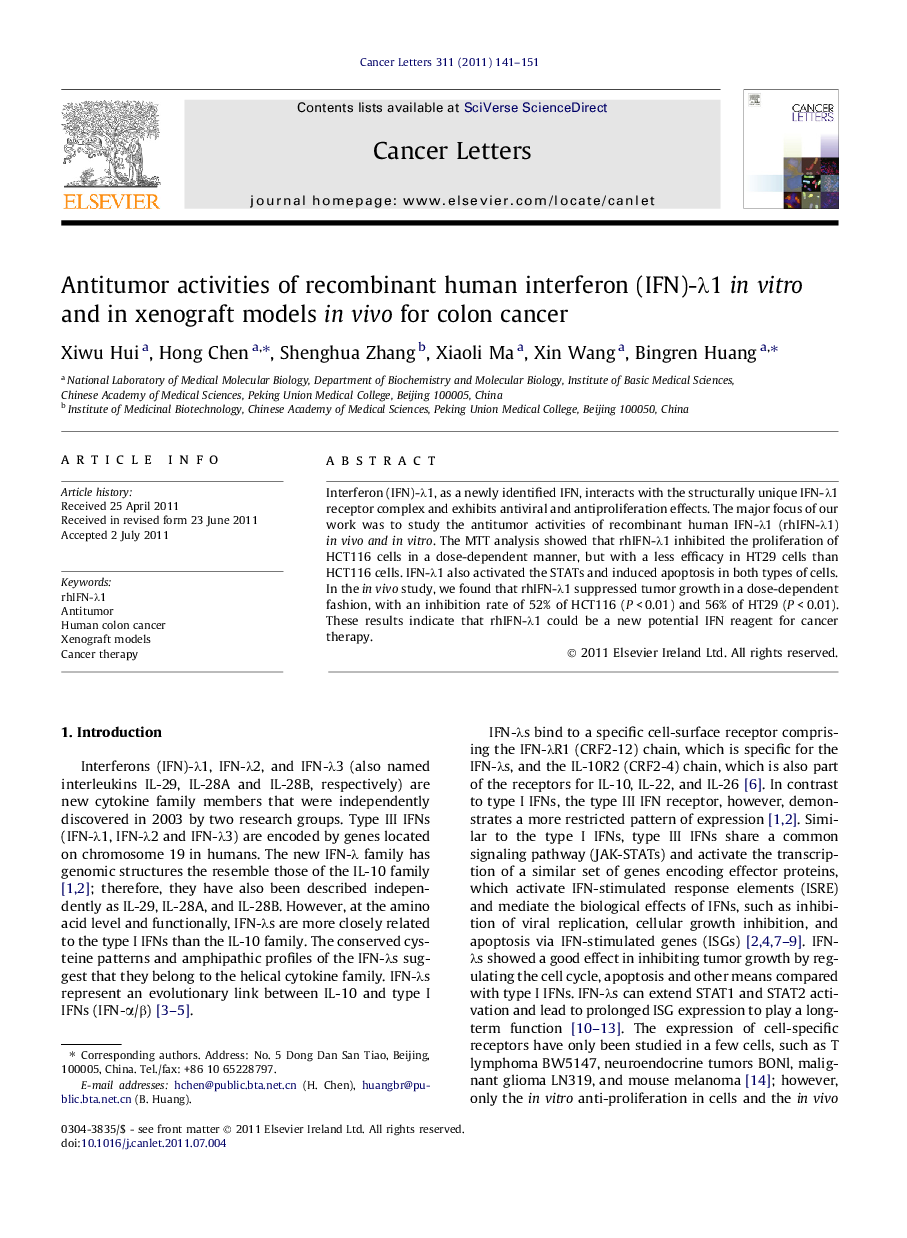| Article ID | Journal | Published Year | Pages | File Type |
|---|---|---|---|---|
| 2113462 | Cancer Letters | 2011 | 11 Pages |
Interferon (IFN)-λ1, as a newly identified IFN, interacts with the structurally unique IFN-λ1 receptor complex and exhibits antiviral and antiproliferation effects. The major focus of our work was to study the antitumor activities of recombinant human IFN-λ1 (rhIFN-λ1) in vivo and in vitro. The MTT analysis showed that rhIFN-λ1 inhibited the proliferation of HCT116 cells in a dose-dependent manner, but with a less efficacy in HT29 cells than HCT116 cells. IFN-λ1 also activated the STATs and induced apoptosis in both types of cells. In the in vivo study, we found that rhIFN-λ1 suppressed tumor growth in a dose-dependent fashion, with an inhibition rate of 52% of HCT116 (P < 0.01) and 56% of HT29 (P < 0.01). These results indicate that rhIFN-λ1 could be a new potential IFN reagent for cancer therapy.
► rhIFN-λ1 inhibited the proliferation of colon cancer cells, HCT116 and HT29 in vitro. ► It prolonged the duration of activated STATs and induced apoptosis in both cells. ► rhIFN-λ1 suppressed tumor growth in a dose-dependent fashion in xenograft models. ► Its inhibition rate is 52% for HCT116 and 56% for HT29 in vivo. ► rhIFN-λ1 could be a new potential reagent for cancer therapy.
